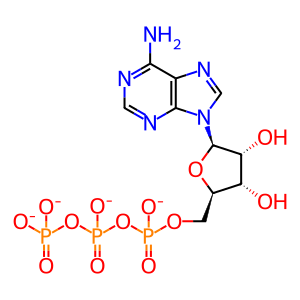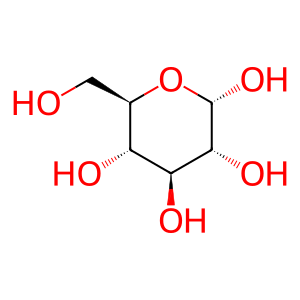Reaction: Defective HK1 does not phosphorylate Glc to form G6P
Cytosolic hexokinase 1 (HK1), together with isoforms HK2 and 3 and glucokinase (GCK), catalyse the irreversible reaction of alpha-D-glucose (Glc) and ATP to form alpha-D-glucose-6-phosphate (G6P) and ADP, the first step in glycolysis. HK1 is the predominant isoform of the different HKs in tissues that utilise glucose for their physiological function such as brain, lymphocytes, erythrocytes, platelets and fibroblasts. Defects in HK1 can cause hexokinase deficiency (HK deficiency; MIM:235700), a rare, autosomal recessive disease with nonspherocytic hemolytic anemia as the predominant clinical feature. Mutations causing HK deficiency are a compound heterozygote (a 96bp deletion and L529S) and T680S (Bianchi & Magnani, van Wijk et al. 2003).
Reaction - small molecule participants:
ATP [cytosol]
Glc [cytosol]
Reactome.org reaction link: R-HSA-5621888
======
Reaction input - small molecules:
ATP(4-)
alpha-D-glucose
Reaction output - small molecules:
Reactome.org link: R-HSA-5621888


